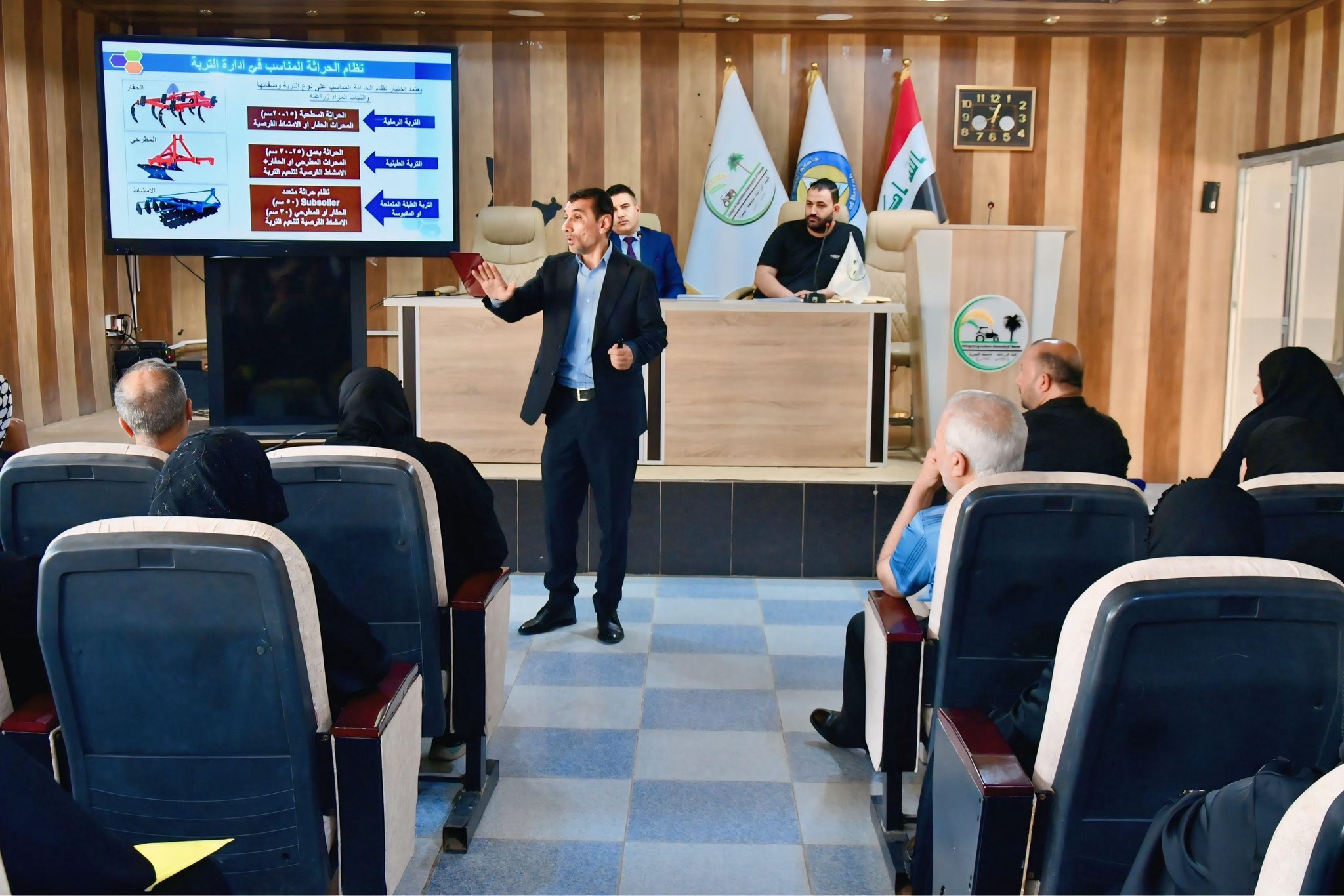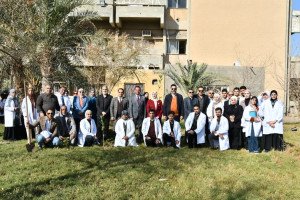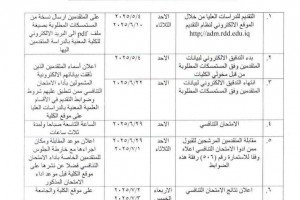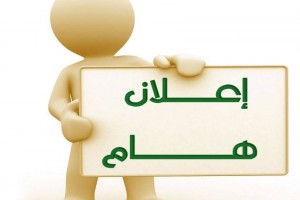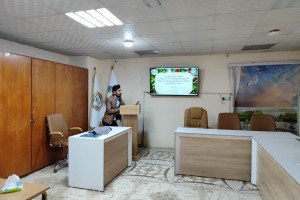
The College of Agriculture at the University of Basra continued its training course for male and female farmers on "Climate-Smart Agriculture" as part of its community service activities. The course, held in the Martyr Mohammed Mohsen Badan Hall, was attended for the second consecutive day by a number of college professors, as well as farmers from various agricultural sectors.
The second day's activities included several scientific lectures. Professor Dr. Sadiq Jabbar Mohsen, Scientific Assistant to the Dean of the College of Agriculture, delivered a lecture entitled "Appropriate Systems and Technologies for Managing Soils Affected by Salinity and Irrigation Water Scarcity." He addressed the problems of agricultural soils, sustainable soil management procedures, soil leveling and its importance, effective drainage systems, deep tillage machines, choosing the appropriate tillage system, and the importance of organic fertilization and related equipment.
Professor Mohsen Abdel-Hay Dasher, Head of the Department of Soil and Water Resources and Director of the Agricultural Advisory Office, also delivered two lectures. The first, titled "Preparing Climate-Smart Farms and Sobat," discussed the mechanisms for establishing modern model farms, their components, establishment costs, and potential challenges for the project, in addition to a presentation of the final components of an integrated farm. The second lecture, titled "Preparing and Manufacturing Compost and Mushroom Cultivation," addressed the definition of organic fertilizer (compost), its preparation mechanisms, potential problems during its formation, and the basic requirements for establishing a white mushroom cultivation project.
Professor Salem Ajr Bandar, Head of the Department of Agricultural Machinery and Equipment, also participated in the course with a lecture titled "Modern Technologies in Model Farms." He addressed the use of drones in agricultural operations, soil-less farming techniques, their types and advantages, Internet of Things applications in model farms, smart houses, and the use of solar energy in agriculture.
The course aims to introduce the concept of climate-smart agriculture, provide participants with the skills necessary to adopt sustainable and effective agricultural practices, and enable them to use smart technology to improve agricultural operations and increase production, thus contributing to adaptation to climate change.
Department of Media and Government Communication - College of Agriculture
